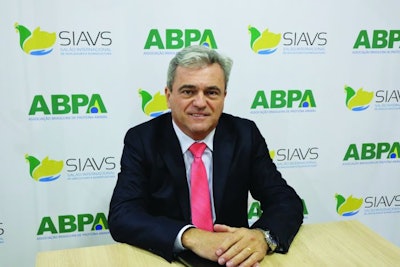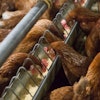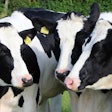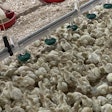
Brazil is one of the most sustainable poultry producers in the world. It may not be the most sustainable, but it has learned from others how it needs to produce.
Brazil’s image, however, has been damaged by concerns about the Amazon, despite almost all Brazilian chicken meat production taking place outside of the Amazon biome. Around 80% of Brazilian chicken production comes from the south and south-east of the country, parts of the country that are the most developed.
Despite this, there is continuous talk of deforestation, and no mention of how many millions of square kilometers of virgin forest remain – 66% of the national territory. The animal protein industry is often blamed for deforestation, but it really should not be.
Sustainability in industry’s DNA
Ricardo Santin, Chief Executive Officer of the Brazilian Association of Animal Protein (ABPA), stresses that producers are against illegal deforestation.
"Neither the Brazilian government, nor poultry producers encourage deforestation," he says, adding that production cannot even start without complying with some of the strictest sustainability regulations in the world.
Feeding the world’s growing population is not easy while acting sustainably, but acting sustainably is, nevertheless, essential. As the world’s third-largest chicken producer and its largest exporter, sustainability is embedded in the DNA of the poultry production chain, Santin explains.
Nevertheless, the Brazilian poultry industry is continually questioned over its sustainability and the links that the media and other organizations make between it and the illegal deforestation in the Amazon.
Santin emphasizes that some have jumped on press reports without considering the facts, and that the Brazilian government has responded poorly when this has happened. There are also organizations and countries that have taken advantage of the fact that there are always fires in the summer, such as those that have occurred in Spain and Portugal, amongst others, ignoring that this is a natural phenomenon.
Protecting the Amazon
Brazil has 66.3% of its territory, or 851 million hectares, covered in virgin forest. Over the last 20 years, the country has protected 4.19 million km2 Amazon forest. In contrast, according to data collected by ABPA, Central America has only 9.7% of its territory covered in virgin forest, while in Europe this figure falls to 0.3%.
While there may be talk of, for example, deforestation of up to 12,000 km2, this is a small amount compared to what is untouched. Illegal deforestation exists, but it is being pursued.
"There are always people who break the law," Satin says, “but that doesn’t mean that the whole country does, and neither is this encouraged by the poultry industry. We are against deforestation."
According to data from the Brazilian Agricultural Research Corporation (EMBRAPA), areas for arable and livestock production on rural properties account for 30.2% of the national territory. Of this percentage, 13.2% is planted grasslands, 9% planted crops and forests, and 8% native pasture.
25.6% of Brazil’s virgin forest is on private land. Legislation dictates that, if land is purchased in the south of the country, 20% must be excluded from production. In the center of the country the percentage rises to 40%, while in the north, the Amazon, this rises to 80%. If a landowner exploits this virgin vegetation, prosecution will follow. Given this strict legislation, Brazil’s poultry producers are able to argue that they are preserving the country’s native vegetation.

Ever more sustainable
Brazil’s climate is perfect for agricultural and livestock production, with an average year-round temperature of 25oC. This gives the sector a significant advantage, both in terms of production costs and health status. Broilers and eggs can be produced without the intensive use of energy.
In addition to this natural advantage, productivity in Brazil has skyrocketed. The adoption of new technologies, increased productivity and conservation initiatives have made the agricultural sector more sustainable. For example, since the 1970s, grain production per hectare has increased fourfold to now stand at 4,000 kg, while the land area cultivated for grain production has less than doubled. Extensive grasslands have been converted to crop production.
“This is how Brazil increases its productivity, you don’t need to deforest any more areas,” Santin explains.
Brazilian poultry industry key data
- Third largest poultry meat producer in the world and largest exporter
- 2021 poultry meat production: 14.3 million metric tons (mmt)
- 2021 poultry meat exports: 4.6 mmt
- Brazilian chicken and pork sold in 150 countries around the world
- 40 days is the time taken to produce a standard 2.4 kg chicken
- Feed conversion ratio (FCR) of 1.6




.jpg?auto=format%2Ccompress&fit=crop&h=167&q=70&w=250)













